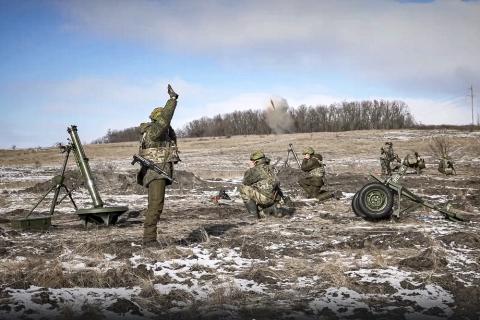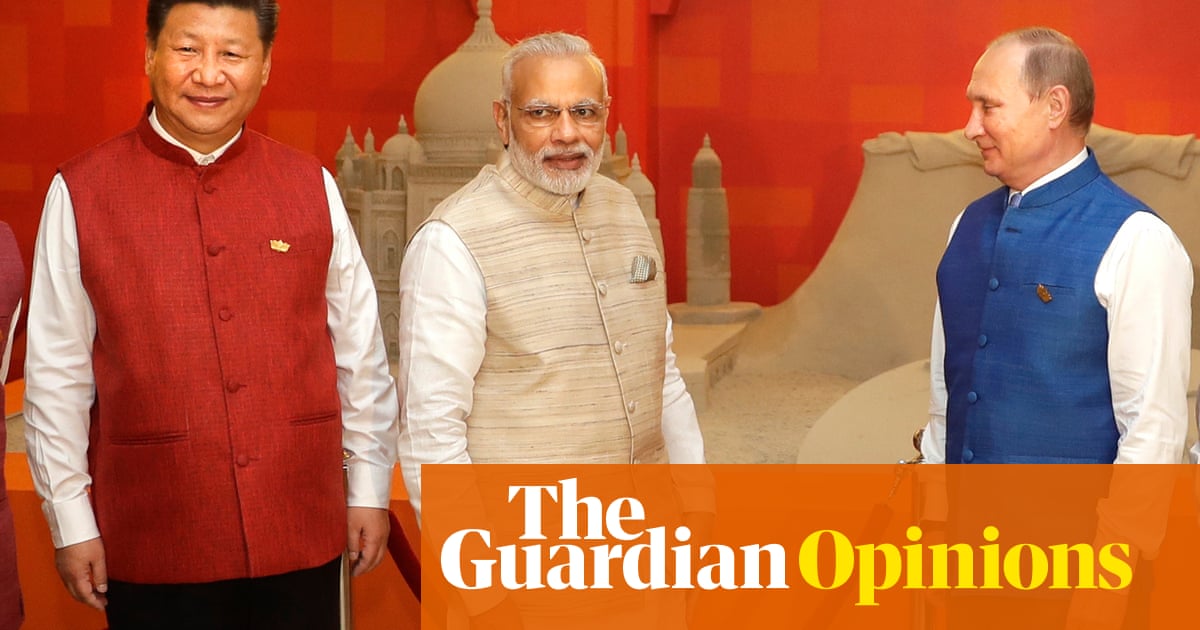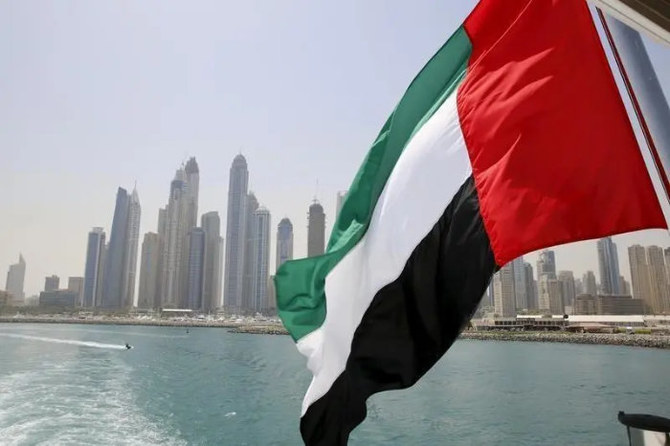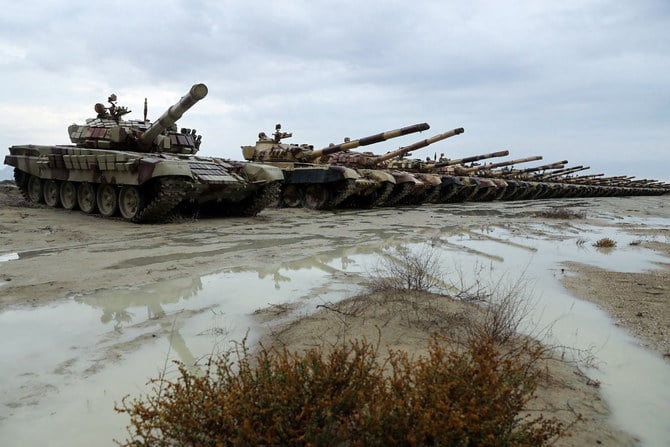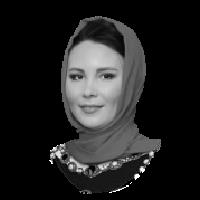
The Ukraine war has significantly affected the political, economic and geopolitical status of GCC regional players worldwide. What are the main dynamics in play in the wider context after more than 18 months of fighting, and how are these assessed from the perspective of the Gulf region?
Shortly after G7 sanctions were introduced in May 2023, Ukrainian President Volodymyr Zelensky addressed the Arab League. This firstly recognized the economic power of the Arab states, especially GCC countries, and their consequent importance to both parties of the conflict through their crucial regional role and growing international voice.
Second, the centrality of energy supply and policy to the conflict was acknowledged. Closer ties with the GCC might help Ukraine tilt the balance in its favor by weakening Russia’s voice at the table. Tentative moves are being made. In late February this year, Prince Faisal bin Farhan visited Ukraine, the first visit by a Saudi foreign minister since diplomatic relations were opened 30 years ago.
Conversely, Russia understands the importance of GCC and other OPEC+ countries to its own economy and the sway they have with Western powers as energy suppliers. There are several candidates to rival or replace Russian gas to Europe.
In such ways, various regional actors have begun to adapt and diversify their economies and politics, strategically responding to new geopolitical realities caused by the war. In March, Riyadh joined the Shanghai Cooperation Organization, the Chinese-led Asian security and economic bloc, with the status of dialogue partner. Qatar and Egypt were also granted dialogue partner status of the Shanghai Cooperation Organization at the Dushanbe Summit in 2022, paving the way for similar status to be granted to Bahrain, Kuwait and the UAE. It is plausible that these states will follow a similar route to that taken by the Kingdom.
Iran, Saudi Arabia, and the UAE were invited to become members of the BRICS group in August 2023, again an economic forum not centered on Western powers. These are examples of the importance of the Gulf actors within worldwide transformations, further strengthening their positions as economic and political forces. However, any such policies will be very delicately balanced, as the GCC states will follow their own national interests. The GCC’s economies remain strongly tied to the US, as their currencies are pegged to the dollar and the global sale of oil is conducted in that currency. Another hint of the cautious nature of developments is that the UAE canceled the branch license for Russia’s MTS Bank, the target of British and US sanctions in February.
Meanwhile, recent normalizations of relationships in the region, especially Saudi-Iran rapprochements, can also be linked with the impact of the Ukraine war. One of the key themes at the 2023 Kazan Forum was the development of an international North-South transport corridor (Mumbai, Moscow, Tehran, Baku, Bandar Abbas, Astrakhan, Bandar Nazali). On the sidelines of the summit, a meeting was held between Deputy Prime Minister of the Russian Federation Marat Khusnullin and UAE Minister of State for Foreign Trade Thani Ahmed Al-Zeyoudi. The prospects for the development of this vast North-South project were also discussed at the meeting, indicating how the GCC countries are alert to and important for alternative routes for trade.
The Ukraine war marks a different kind of turning point for the global balance of power and for a wider recognition of Gulf players’ global significance.
Dr. Diana Galeeva
Similar dynamics are occurring in the military and security fields. Russia and the UAE have discussed the delivery of existing contracts on military-technical collaboration and promising areas of collaboration, according to a representative of the Federal Service for Military-Technical Cooperation at IDEX 2023. There is increased activity by the joint Russia-Saudi intergovernmental commission on military-technical collaboration.
Again, there are positive dynamics between regional players, as normalizations between Saudi Arabia and Iran have seen Moscow emerge as a neutral platform for bilateral talks between Saudi and Iranian defense officials in August.
However, GCC countries’ defense infrastructure is still heavily reliant on Western equipment. For example, despite presenting itself as carefully balancing between Ukraine and Russia over the war, Qatar recently agreed to extend joint Typhoon operations with the UK for another two years, which illustrates the importance of the Western allies in defense and security, especially considering the long-term historical relations that have formed the Western-security umbrella.
The worldwide consequences of the Ukraine war presents some challenges to the Gulf countries. Food security, which was already a concern due to the global epidemic and climate change, has become more pressing since Russia suspended its participation in the grain deal that allowed Ukraine to export its grain by sea. This highlighted the fragility of global supply chains, and the food security of the GCC, causing problems such as food price inflation, especially in Kuwait.
As might be expected, however, strategic thinking can turn these same circumstances into an opening. The UAE offered a five-year, $500 million financing deal to Egypt to fund its wheat imports. Food security may also be a platform for further enhancing the global profile of Gulf states since they are credible mediators in the disagreement, emphasising their neutrality and persuasiveness.
The Ukraine war has already created new niches within worldwide diplomacy, such as Saudi Arabia hosting peace talks in August, described as “flexing its diplomatic muscle,” while Riyadh reportedly mediated a prisoner swap between Ukraine and Russia in September 2022. Meanwhile, other actors also play essential roles in humanitarian aid. The UAE sent a ship carrying 250 tons of relief aid to Ukraine in August, in addition to 30 tons of emergency medical and relief aid in March 2022. In October 2022, the UAE also promised to send $100 million in humanitarian aid.
In other words, the conflict has offered multiple opportunities for GCC countries to showcase soft power and branding initiatives. One positive perspective on these geopolitical transformations is that Gulf countries feel able to become key diplomatic actors who maintain good working relations with all sides to position themselves as potential mediators. As the result, arguably, the Ukraine war marks a different kind of turning point for the global balance of power and for a wider recognition of Gulf players’ global significance.
Dr. Diana Galeeva is a former academic visitor to St. Antony’s College, Oxford University (2019-2022). Twitter: @Dr_GaleevaDiana





